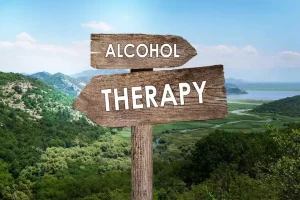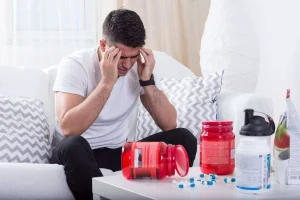
However, addiction treatment involves support in this respect. During rehab, you can take up fitness classes, as well as engage in meditation, yoga, cooking, nutrition classes and art. By exploring healthy living during rehab, you will find it much easier to carry on with these positive habits in your regular life. The fear of being sober is a very common fear in recovery.
Seven Common Fears in Recovery (and Why Sobriety Is Still Worth It)
- I’ve attended weddings, I’ve gone to bars, I’ve seen my favorite bands in concerts and I’ve even hung out with my old friends from my drug-using days.
- These practices focus on bringing your attention to the present moment, which can help reduce worries about future sobriety and decrease your overall anxiety levels.
- And by stopping drinking and starting on the road to rediscovery, you will learn so much about yourself and begin to be comfortable within yourself.
I too was scared of this happening, and it’s true there will be some changes in friendships especially if all you did was get plastered down the pup with your mates. People will be wary of you, envious even, and they may avoid you for a bit because of their own issues. People worry so much about failing with sobriety because they think it will mean they have a problem, that they will be worse than before.
- We understand how scary it can be to commit to long-term sobriety, especially if you have never been sober before and you have no idea what to expect.
- Many people drink and do drugs precisely because they don’t like who they are and want to dull the sensation of their shame, self-loathing—even self-hatred.
- They may have wronged some of these people, or they might be embarrassed about how they once acted.
- Anger is a normal and natural emotion, but how you deal with it will make a difference in maintaining your recovery.
- However, it is important to remember that sobriety is not something to be afraid of.
Define Your Fear to Overcome It
Sobriety seems like a lot of hard work, boring, and downright miserable—not to mention impossible. And, when going to rehab demands stepping back from your life for a temporary period of time in order to focus on getting well, recovery can seem more like regression than moving forward. In the early days, I felt that it was my responsibility to answer the question, “How come you aren’t drinking? ” I didn’t understand I could decline to answer or that I didn’t have to make sense to everyone. For a period it was, “I’m an alcoholic,” and that tended to silence anyone (for clarification, I no longer identify as an alcoholic). These days, unless I’m feeling generous, I simply say, “I don’t drink,” and leave it at that.
Easter Weekend Special Offer
And by stopping drinking and starting on the road to rediscovery, you will learn so much about yourself and begin to be comfortable within yourself. You’ll have so much fun and the only thing you’ll regret is that you didn’t do it sooner. It might be a bit weird at first and fear of being sober the usual questions will come but that’s just one time, they’ll move on and so will you. I remember my first kids birthday party sober, I took my youngest to a friends house for a pool party and it was a lot of fun. Some parents were drinking and some weren’t – no big deal.

Do Alcoholics Drink Every Day? Signs of Alcohol Use Disorder
I have bad days all the time, sure I am much happier sober but life happens, stuff comes up that you have to deal with or cope with. If like me, you used alcohol to cope with problems, stress, your kids or a bad day, then you become so used to turning to this crutch you can’t imagine how you will cope instead. If you keep drinking you will get bored and become boring doing the same things again and again. When you’re sober, you will never be boring, in fact, your whole world will open up for you. So, if you’re worried you will become boring – forget it, you won’t. Support groups such as Alcoholics Anonymous, SMART Recovery, or other local sobriety support groups offer a community of people who are going through similar challenges.

You’re Afraid of Withdrawal Symptoms.

To outsiders it might sound like a fear of success, but the fear of sobriety is more about your feelings without substance abuse. After all, it’s been a long time since you were sober, and maybe your last experiences of sobriety were traumatic. That’s why you started using in the first place. The truth is, you have been using drugs or alcohol to cope with your feelings and maybe even symptoms of mental illness. If you give substance abuse up, you’ll have to face those emotions and find a new way to cope. If you have been abusing substances to tamp down feelings, you are in for a boatload of overwhelming emotions as you come clean.
How to Cope with a Fear of Sobriety

I lost my brother, I moved to another country, I left AA, I bought a house, and I started a new career as a writer working for myself — all incredibly stressful events and circumstances. https://ecosoberhouse.com/ But I coped and I feel infinitely stronger for doing it on my own without drugs and alcohol to inhibit my progress. You’ll be the best version of yourself that you can be.

On the one hand, you hate what your life has become due to drinking. On the other, you’re scared to death of what sobriety will do to your world. Most people who make their way into recovery have left a lot of pain and suffering in their wake. Feeling guilty or ashamed of past behavior or actions during active addiction is natural and healthy. Research shows that if you maintain these types of toxic relationships, your chances of relapsing are greater. To avoid relapse and remain sober, it’s important to develop healthy relationships.
- I’m interested to know what your biggest fear is when you think if stopping drinking?
- If you are trying to maintain a sober lifestyle, those feelings can become toxic and contribute to relapse if you don’t deal with them properly.
- Talk to your therapist, other healthcare provider, or sponsor about how to deal with your anger in ways that won’t cause you to harm yourself or others or turn to alcohol or drugs.
- The key is to take your recovery one day at a time.